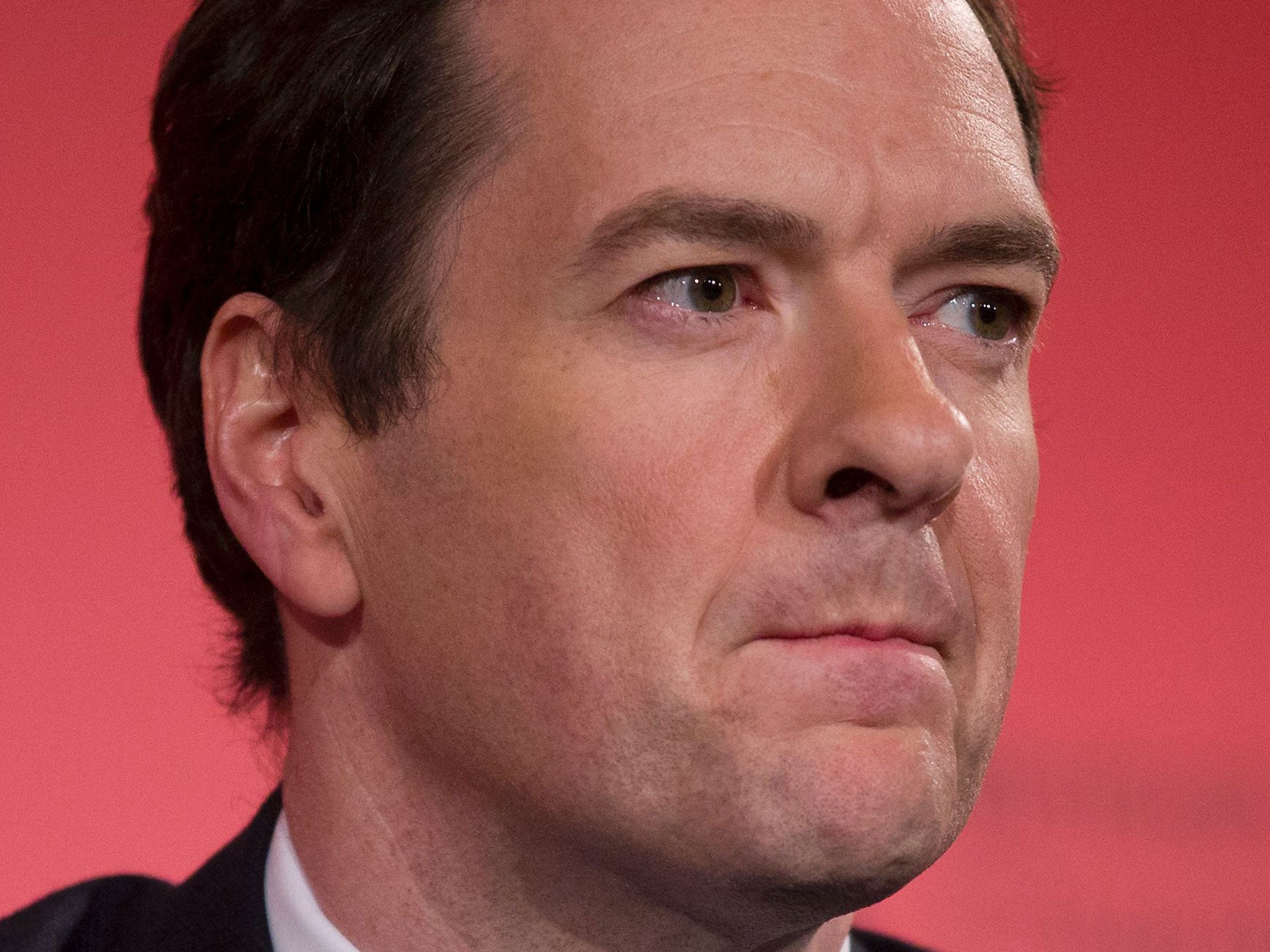Real pension reform is needed if we don’t want today’s thirtysomethings to work until they are 80
George Osborne needs to give the younger generation a break

Your support helps us to tell the story
From reproductive rights to climate change to Big Tech, The Independent is on the ground when the story is developing. Whether it's investigating the financials of Elon Musk's pro-Trump PAC or producing our latest documentary, 'The A Word', which shines a light on the American women fighting for reproductive rights, we know how important it is to parse out the facts from the messaging.
At such a critical moment in US history, we need reporters on the ground. Your donation allows us to keep sending journalists to speak to both sides of the story.
The Independent is trusted by Americans across the entire political spectrum. And unlike many other quality news outlets, we choose not to lock Americans out of our reporting and analysis with paywalls. We believe quality journalism should be available to everyone, paid for by those who can afford it.
Your support makes all the difference.Everyone agrees that Britain doesn’t save enough for its old age. Everyone also concurs that the young of today, the healthiest generation in history, will face a long retirement with often inadequate funds to protect them from hardship. Many of their parents and grandparents worked hard, but were also fortunate to benefit from a final-salary pension scheme. Their descendants, as has been well noted, are poorly placed to build up any kind of retirement pot, or even save a sufficient sum to buy a home of their own. What seems impossible to agree upon is what is to be done.
George Osborne may or may not have a good record on the economy generally – he will have an opportunity to make his case in his Budget in a few weeks – but he is unlikely to be remembered as the man who solved Britain’s pension problem. If anything, the Chancellor’s measures could easily make it worse.
The Government’s decision last year to permit those approaching retirement to cash in part of their pension pot was revolutionary, and its consequences are not yet clear. Now the Chancellor has apparently been debating another radical reform: the abolition of higher-rate tax relief on pensions. This has been met with dismay, both by the pensions industry and the better-heeled individuals who enjoy a 40 per cent slug of tax relief on their pension contributions – which can now, of course, be cashed in early to spend on life’s luxuries.
There is nothing wrong with offering people choice, but the old unspoken contract with the taxpayer was that such reliefs were specifically for people to spend on and after retirement and well into their old age. Instead, we now have a situation where all the tax breaks can, in effect, be cashed in at a much younger age. The risk is that the state will in due course have to step in where private pension plans once provided an income and protection from poverty. That means that the qualifying age for the state pension, already almost reaching three score and 10 years, would have to stretch towards 80, or – more likely – the already barely adequate stipend will fall further in its buying power.
By the time today’s thirtysomethings reach “retirement”, even with much improved life expectancies, they will have very little time to enjoy whatever funds that might have built up.
The signs are that, having floated the notion of cutting back tax reliefs on pension contributions in favour of a broader “pensions Isa”, Mr Osborne is reportedly retreating in the face of pressure from his own grassroots and, perhaps, the pensions minister herself. And yet the iniquity of the present situation – the appalling intergenerational unfairness that a combination of misfortune and policy has created – dictates that, sooner or later, a chancellor will indeed have to scale back one of the few middle-class tax breaks remaining.
Many of those in middle age have enjoyed all manner of subsidies that seem to belong to another world now: free university education, with maintenance grants paid by local authorities; rent and unemployment benefit for students; mortgage interest relief on house purchases; an inexorable increase in property values; and, of course, “proper” final-salary-linked pension schemes provided by welfarist employers.
Mr Osborne, who himself has a long working life still ahead of him, should reflect on that and do the right thing – give the younger generation a break.
Join our commenting forum
Join thought-provoking conversations, follow other Independent readers and see their replies
Comments